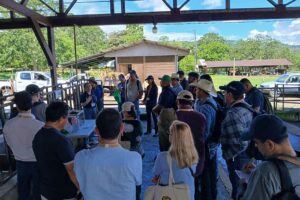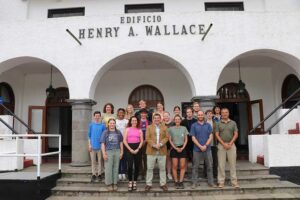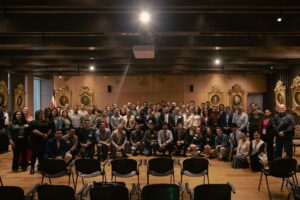British Ambassador to Guatemala learns about honduran project that seeks to transform the livestock sector
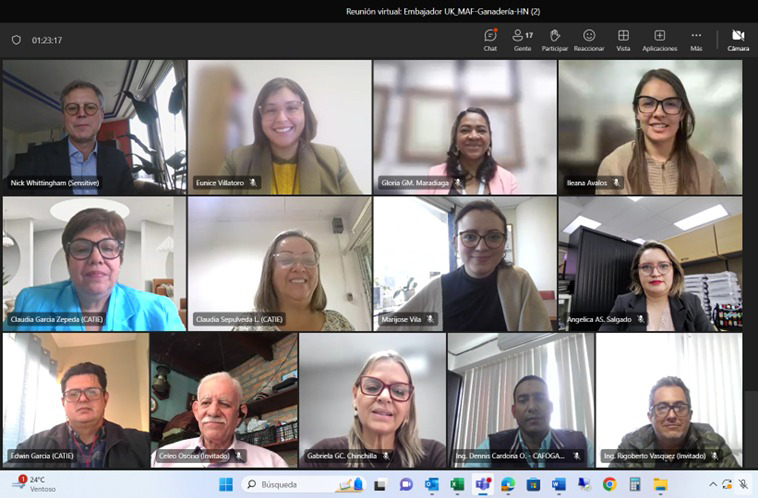
- Nick Whittingham learned about the impact that the MAF-Ganadería-HN project will have on Honduras' low-carbon economy.
December 13, 2023. In the framework of a virtual meeting that strengthens cooperation in the fight against climate change, the British Ambassador to Guatemala, Nick Whittingham, learned on December 12 about the mission of the project Transforming the Honduran livestock sector into a low carbon economy (MAF-Ganadería-HN).
The meeting provided an opportunity to discuss the MAF-Livestock-HN project, which is led by the Secretariat of Natural Resources and Environment (SERNA) and the Secretariat of Agriculture and Livestock (SAG), with technical support from CATIE (Tropical Agricultural Research and Higher Education Center) and funding Mitigation Action Facility, an initiative of which the British Government is a member.
Edwin García, CATIE representative in Honduras, together with Claudia García, coordinator of the MAF-Livestock-HN project, presented the details and scope of this initiative to the Ambassador.
The project, which represents a joint effort to transform livestock farming into a sustainable pathway, seeks to reduce greenhouse gas (GHG) emissions and maximize carbon sequestration, while improving the competitiveness of the sector, thus aligning with Honduras' Nationally Determined Contribution (NDC) targets and the Sustainable Development Goals (SDGs).
Key components of the project include increasing technical capacities to access climate finance, improving knowledge of low-carbon solutions for the livestock sector, aligning institutional efforts within a favorable regulatory framework, and increasing the availability of attractive financial instruments to implement these solutions, leveraging public and private resources.
Ambassador Whittingham, showing great interest in the initiative, heard how the project has the ambition to transform 1,200 farms into low-carbon production systems. The beneficiary producer families will commit not to deforest their farms through voluntary agreements. With a five-year projection, 633,447 and 180,772 tons of carbon dioxide are expected to be mitigated directly and indirectly, respectively.
In addition, the Ambassador learned about how, ten years after the conclusion of MAF-Livestock-HN, direct and indirect mitigation of 7,159,902 and 18,303,337 tons of carbon dioxide, respectively, is projected.
MAF-Livestock-HN will be monitored and evaluated through a digital platform that will facilitate informed decision making, foster a continuous learning cycle, and provide key metrics for the country's NDC and national policies.
The meeting culminated with the presentation of the project team members and implementing partner institutions, which include agricultural sector associations (FENAGH, FEGASURH, COFOGAH, CAHLE), public institutions (SAG- DICTA, SERNA, ICF, SEFIN), private sector (APROLECHE, ASOHPROLAC, Agroindustrias Del Corral), public financial sector (BANHPROVI), private financial sector and universities (Zamorano, UNAG), among others.
The project is also supported by the Central American Integration System (SICA), through the Executive Secretariat of the Central American Agricultural Council (SECAC) and the Central American Commission for Environment and Development (CCAD).
This project is not only a model for the region but also an example of the crucial role that international cooperation plays in supporting climate efforts in developing nations to achieve a more sustainable and resilient future.
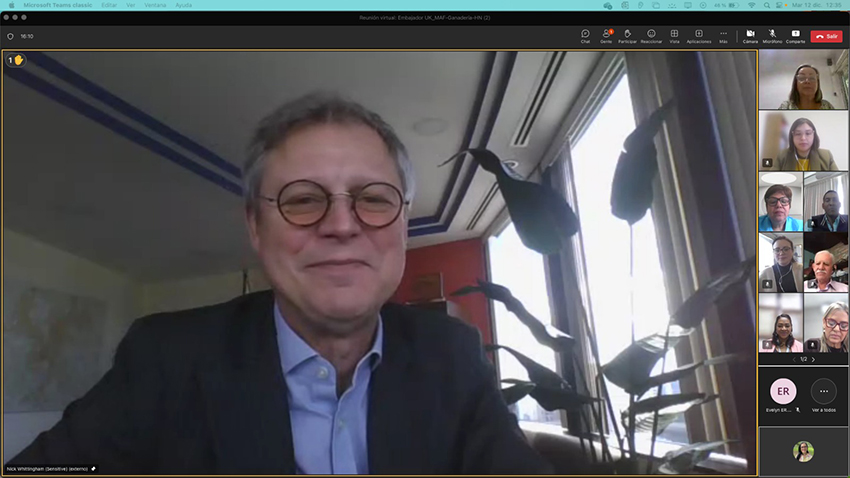
More information:
Edwin García
a.i. CATIE Representative in Honduras
egarcia@catie.ac.cr
Claudia García
MAF-Ganadería-HN Project Coordinator
CATIE
claudia.garcia@catie.ac.cr
Written by:
Karla Salazar Leiva
Communicator
Communications and Marketing Office
CATIE
karla.salazar@catie.ac.cr

